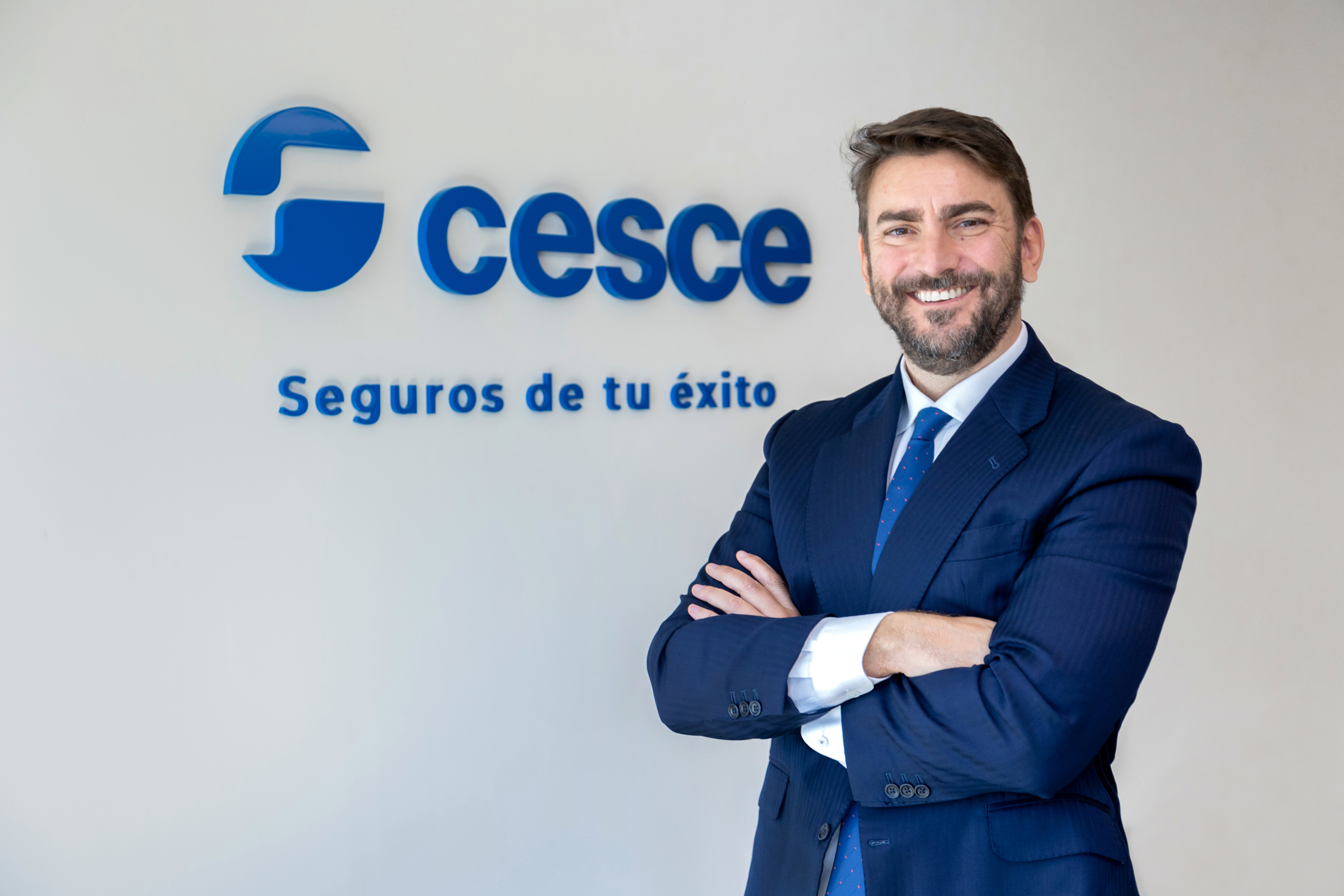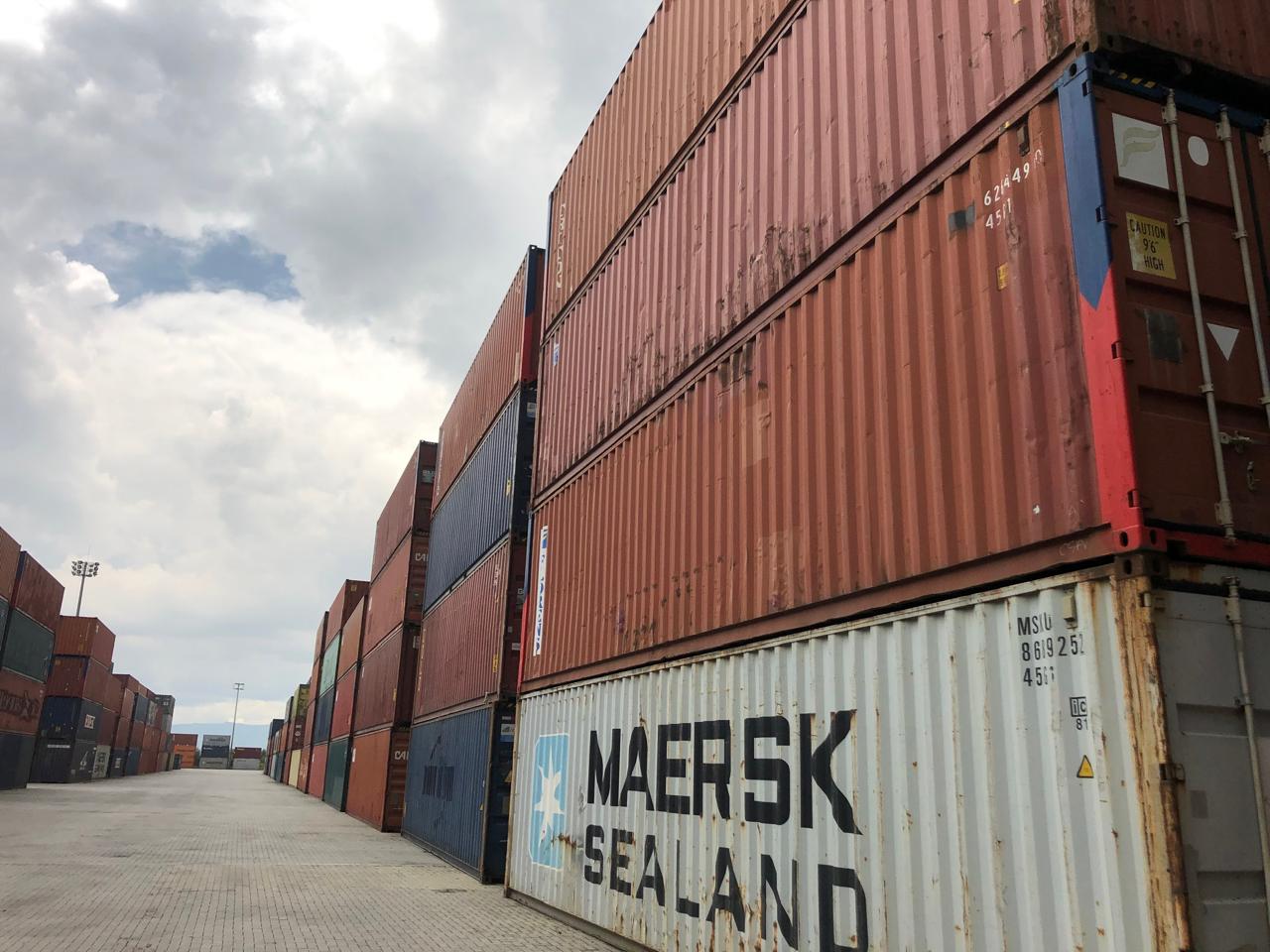"Tariff uncertainty greatly affects the insurance market because it delays decision-making," says Pablo de Ramón-Laca, president of Cesce.

The Spanish Export Credit Insurance Company (CESCE) may not mean much to the average Colombian, but those involved in the world of foreign trade, insurance, guarantees, and bonds will know that this Spanish-born firm occupies an important position in the domestic market, where it holds a 30 percent market share.
It entered Colombia in 2000 through Segurexpo, a former state-owned insurer specializing in credit and compliance insurance, initially acquiring a 21.1 percent stake, which it gradually increased until it acquired the remaining 50.03 percent in 2022.
The president of this Spanish group, Pablo de Ramón-Laca, was on a quick visit to Colombia during a tour of Latin America, where they have four other subsidiaries: Brazil, Mexico, Chile, and Peru. He spoke with EL TIEMPO about their immediate plans in the region, but particularly in the country, where they remain alert to opportunities to continue expanding their market share, either through operations or through the acquisition of other companies. This is what the executive had to say:
How is the company doing in Latin America? Latin America is beginning to provide significant benefits for the organization; it is an increasingly important part, with results last year of €14 million (approximately $16.2 million), representing 19 percent of the company's total. We are now completing a period of recovery, restructuring, and business consolidation. Our five subsidiaries in the region (Mexico, Brazil, Colombia, Chile, and Peru) have gone through difficult times, but all are now in the black (positive results), so they are increasingly an important part of the group's strategy.
They are currently finalizing the 2022-2026 strategic plan and designing the plan for the next four years. What are these new plans and goals? Without a doubt. This year, it's time to develop a strategic plan that will consolidate precisely that importance of Latin America as an essential part of the Cesce Group. We're not just a multinational company. We like to call ourselves a multi-Latin company because we have significant expertise in the region, not only because of the cultural affinity between our countries.

Pablo de Ramón-Laca, president of the Spanish-born Cesce insurance company operating in Colombia. Photo: Cesce
Well, it's a bit like what everyone is seeing: an increasingly uncertain future. The rules-based international order has been strained for many years and has broken down in recent months, so uncertainty poorly managed by companies can lead to delayed investment decisions, fluctuations in financial markets, and, in the extreme, a situation of despair and disenchantment with the multilateral world. So, our mission at Cesce is to help companies overcome this crisis, to make better use of their cash flow, particularly through credit insurance, to cover this increased uncertainty.
This means that companies today are demanding less credit insurance and prefer to take on risks with their own resources... Without a doubt, the biggest competitor to credit insurance in Colombia, where Cesce has a 30 percent market share, is self-insurance. Companies today have an inefficiently high cash position in case of any type of incident, so using credit insurance properly, which is what we offer, helps them make better use of their cash resources and sleep more peacefully in this world of increasing uncertainty.
How does credit insurance behave in the country? We are well established in this segment of the insurance business, where Colombia has one of the largest markets in all of Latin America, with a total of $46 million across all the companies in the industry. As I mentioned before, Cesce has a 30 percent market share and is in second place in Colombia, which is one of the largest aggregate markets in Latin America. We offer credit and surety insurance, with more than 5,000 Colombian companies and 32 Spanish companies, with an insurable value of around €200 million (close to one trillion pesos). However, there is undoubtedly a huge market to grow there, well beyond the current $46 million, with the greater risk awareness of all companies and the increased use of credit insurance to maintain a more efficient treasury position.

Credit insurance and guarantees, a US$46 million market in Colombia, with potential for growth. Photo: Carlos Arturo García M.
The main problem facing the Colombian productive sector, which is similar to that of Spanish companies, is that they are very small, generally microenterprises. So Cesce's mission, both on its own and through the State, is to help them take the step toward growth, because the increases in productivity and internal and external competitiveness that we are all seeking are within the size of medium-sized companies.
In Colombia, as in Spain, there is a very high level of informality, so businesses tend, by nature, to use insurance less and cash more. Therefore, the task is to encourage them to enter the formal sector of the economy and understand the risks involved in growing as a business. This is the mission of the Colombian government's economic policy.
How does Colombia fare compared to the other subsidiaries you have in the region? The credit insurance market in Colombia is more important than in other countries. We are the second largest operator in Colombia; in Chile, for example, we only offer surety insurance, although we are authorized to operate in the credit sector, making Colombia a more sophisticated country than others in this sector, where there is still room for improvement. In the surety market, as I mentioned before, we have a significant market share, but I would emphasize that our comparative advantage in the country is our strong position in credit insurance.

The second wave of tariffs announced by Donald Trump will hit the world on August 1. Photo: iStock/Trump
What's most affecting is the uncertainty caused by the back-and-forth of imposing or removing tariffs. While they're said to be permanent, but are actually subject to review, this uncertainty generates a feeling of unease that risks delaying investment decisions, such as international expansion. A tariff always reduces trade, but there are ways to implement these tariffs to reduce the uncertainty that greatly affects credit insurance.
And amidst this uncertainty, how do you think the 2025 closing will be for Cesce? At a consolidated level, with all Latin American companies in the black, the Group is in a more comfortable position this year, and we see that we can repeat or even improve on the previous year's profits of €63 million (approximately $7.3 million). We are in the process of designing the strategic plan, which must be approved before the end of 2025, to maximize the synergies across all the organization's companies, including Spain, Portugal, and all Latin American subsidiaries.
How can they grow in a market like Colombia, where they see good potential? Yes, we see growth opportunities in Latin America in general and in Colombia specifically. Credit insurance has a lot of room for improvement, and as I said, if companies realize the importance of hedging against the risk arising from global uncertainty, we can anticipate growth for the company in the credit insurance market, and also in market share.
In this regard, we insist that we seek to consolidate our business in Colombia and the rest of Latin America by increasing our presence. Cesce is committed to Latin America because we believe it is very important for the future, given its natural wealth, its availability of raw materials, and the presence of thriving companies eager to expand.
Would that increase in market share be achieved by acquiring other companies? Yes, but we're still reflecting on it. We have the reserves and solvency to make those acquisitions, although we see a lot of room for organic growth. But if we see opportunities to acquire companies not only in Colombia but also in Latin America at affordable prices, then we could consider it, but right now the central plan is organic growth.
eltiempo





